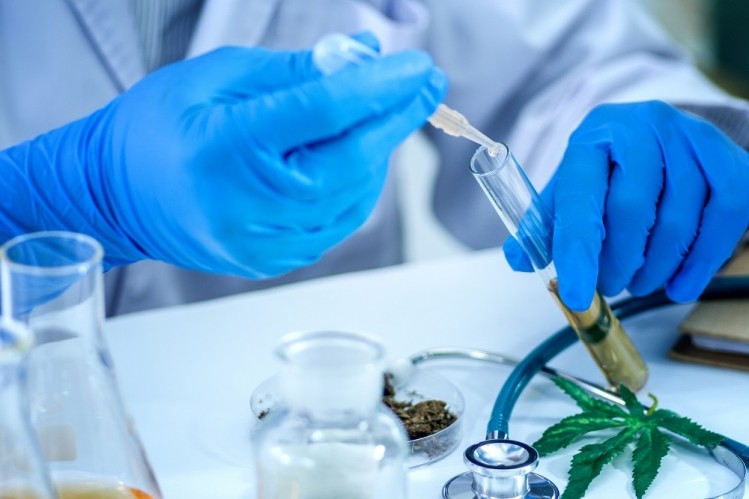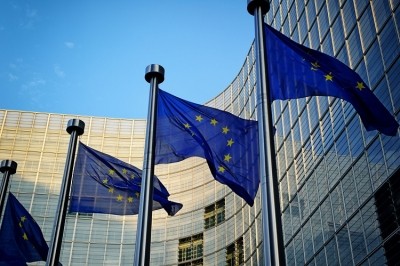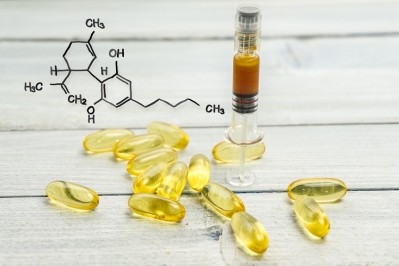Cannabinoid research: ‘Pharma on the sidelines with binoculars, not with a blind eye’

Last year, two major pieces of news broke that generated a huge amount of interest in using cannabinoid (CBD) therapeutically: the first was the US Food and Drug Administration (FDA)’s approval of GW Pharmaceutical’s Epidiolex (cannabidiol), and the second was the passing of the ’farm bill’.
The approval of GW Pharma’s product became the first FDA-approved cannabis-derived treatment, requiring the Drug Enforcement Agency (DEA) to provide an exception to its scheduling to allow for approval. It was hailed as a breakthrough that would enable future treatments developed from cannabis to emerge.
The recent approval of the Agriculture Improvement Act of 2018, otherwise known as the farm bill, allows for hemp cultivation and production in the US, provided the tetrahydrocannabinol (THC) content is lower than 0.3%.
At the time, Alex Wasyl (AW), CEO of Nexien BioPharma, welcomed the decision as it allows for increased research to determine further therapeutic uses for CBD.
Nexien’s pipeline includes treatments for exposure to organophosphorus nerve agents, as well as treatments for convulsive disorders, myotonic and muscular diseases.
In-PharmaTechnologist (IPT) spoke to Wasyl to learn his take on the developments in the CBD market last year, in addition to what can be expected from his company and the wider market in 2019.
IPT: How is your work with CBD different from others in the space?
AW: We have a strong point of difference [compared to GW Pharmaceutical's Epidiolex], in that we're not looking at oral delivery but at a rescue treatment for faster onset. We would be looking at forms of delivery already seen in the pharmaceutical industry, such as an autoinjector pen.
Patients with epilepsy often have multiple seizures per day – the protracted time to efficacy for oral CBD therapy might be disadvantageous for patients and physicians. Other challenges for oral delivery are first-pass metabolism, low bioavailability and drug-drug interactions alongside the first-pass metabolism.
We're circumventing these issues by using our own proprietary CBD formulations, which can be delivered parenteral formats whether that be intramuscular or intravenously.
IPT: Are there any challenges in producing your candidates?
AW: Producing the sterile drug comes with some complication – it's a little bit more expensive. However, when you consume CBD orally, you lose about 90% of it, whereas when you receive it parenterally, you get about 100% bioavailability. As has been released, the cost of Epidiolex to a patient is also going to be pretty high, so we're working on reducing the cost and improving bioavailability.
IPT: How does Nexien operate within the market?
AW: We're set up like any other pharmaceutical company. We work only with DEA licensed pharmaceutical vendors, whether that's academic research labs or Schedule I licensed API supplier. We're not meshing with the state market in any way shape or form, we're treating CBD like any other API (active pharmaceutical ingredient).
IPT: Why are CBD therapies being explored?
AW: People have advocated for medical cannabis, and most states have eventually recognised that the types of products being sold are geared towards adult-use rather than medical conditions – though it does help people with their medical conditions. However, smoking cannabis is not considered a viable long-term therapeutic because there a number of things that could wrong from the inhalation of combustible material.
The people who really need the targeted therapeutics for their specific medical indications are not getting an optimal format of CBD. If you're trying to treat a chronic disease that occurs every day but you're getting a product that varies from batch to batch in consistency or potency.
IPT: How does the pharma industry fit into the market?
AW: The pharmaceutical industry has recognised the therapeutic potential of these compounds. GW Pharmaceuticals has done a great job of paving the way with the FDA, which has a trickle-down effect. The stigma of CBD is being released – there are more and more universities that have research programmes, more private companies are investigating compounds and larger pharmaceutical companies are on the sidelines, but now with binoculars not with a blind eye.
In 2019 and 2020, and beyond, you're going to see more clinical data, more science and more delivery mechanisms.
IPT: Is the developments in the field attracting more interest from larger pharma companies?
AW: A lot of the bigger companies were already aware of what GW Pharma was doing, and the public support – by the way of its Nasdaq listing and stock price. Still, they weren't ready to take the risk until the smaller guys figured it out. Now that they have, a lot of companies that were on the sidelines, pre-Epidiolex approval, have jumped into the space. Whether that's biotech start-ups or major pharmaceuticals who are developing their own research programmes.
However, for major pharmaceutical companies, they want to see more and more therapeutic value, through approvals for more indications, before they begin to make major acquisitions, investments or joint-ventures.
IPT: Has there been interest outside of pharma?
AW: Yes, we're also looking at an opportunity to work with the US Department of Defense or military contractors for a formulation and patents that allow for intervention to nerve agent exposure to delay onset or extent of damage to the central nervous tissue, using CBD and existing therapies in conjunction.
IPT: How supportive is the FDA?
AW: The FDA is vocal about a bright future for pharmaceutical CBD. The agency is in support of clinical research and data for safety and toxicology information, to show that if you're going to make claims then they should be presented to the FDA. It is not in support of these compounds being added to foods, beverages or cosmetics.
In our opinion, what has become out of control is 'Hemp CBD'. People quote the farm bill to suggest their product, because it is extracted from hemp, is indemnified from being a Schedule I substance. The FDA is going to make efforts to regulate this market more strictly, after testing the most popular products and finding that many contained little to no CBD. In addition, people are making medical claims that their products are able to cure everything from acne to cancer, which raises a big red flag for the FDA.
IPT: How do patients react to the possibilities of utilising CBD?
AW: When we go to conferences and we see parents with children who have neurological or neuromuscular issues, they ask us how quickly we can get products on the market. We have to say that there's good and bad news: the good news is when we do, there'll be a reliable supply from your physician that is clinically proven, but the bad news is that it does take time to get to that point.
Alex Wasyl is CEO of Nexien BioPharma who has acquired over a decade of experience in pharmaceutical, biotechnology, drug delivery systems, food, beverage, nutritional supplements, nutraceuticals, consumer products, industrial chemicals, and green cleaning technology.


















